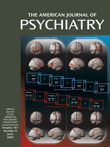Venlafaxine and Sour Date Nut
To the Editor: We report a severe acute serotonin reaction (1, 2) with some anaphylactic features, possibly due to an interaction between venlafaxine and a Chinese herbal remedy, sour date nut (Chinese suan zaoren or Ziziphus jujube) (3).
Ms. A, a 40-year-old Caucasian woman with intermittent depression, consulted a traditional Chinese healer with complaints of insomnia, fatigue, nervousness, and poor appetite for which sour date nut (jujube), 0.5 g/day, was prescribed. She took this product for several weeks, with minor improvement. She was subsequently prescribed venlafaxine, 37.5 mg/day, for depressive symptoms by a psychiatrist who was unaware of her use of jujube.
Approximately 1 hour after ingesting the first dose of venlafaxine and jujube at bedtime, Ms. A became agitated, restless, nauseated, dizzy, and ataxic and subsequently collapsed. Upon examination, she was pale, drooling, unable to sit, profusely diaphoretic, tachypneic, trembling, and shivering. She appeared near cardiovascular collapse, with absent peripheral pulses but a carotid pulse of 50 bpm. Her blood pressure was 60/40 mm Hg, her respiration rate was 40 breaths per minute, and her pupils were widely dilated but reactive. Thirty minutes later, her blood pressure was 180/100 mm Hg, her pulse was 80 bpm, and her respiration rate was 14 breaths per minute. Eight hours later, her vital signs and mental state returned to normal; monitoring of her vital signs and supportive physician care were intermittently provided at home over the next 24 hours.
Since Ms. A suffered from treatment-resistant depression, she was instructed to stop taking jujube and to resume taking venlafaxine. She was not rechallenged with jujube but took venlafaxine, 150 mg/day, for 1 month without side effects.
Jujube is reputed to have anxiolytic, hypnotic, appetite-stimulating, narcotic, and antiarrhythmic effects with low toxicity (3). Its pharmacological effects are incompletely understood but are thought to be due to triterpenes. Evidence to support these claims and of its active component is limited (3). Furthermore, the U.S. Food and Drug Administration has detained importation of Ziziphus jujube by 20 manufacturers or shippers from China because of contamination of 60% of the product with rodent, cat, bird, and insect filth (4).
Physicians should ask patients about the use of herbal remedies and advise their discontinuation before prescribing antidepressant drugs if there is a possibility of serious harm. Since many herbal products lack quality control and information concerning potential interactions with other substances is limited, it is often difficult to determine their safety. Until further information is available, jujube should not be combined with antidepressants.
1. Insel TR, Roy BF, Cohen RM, Murphy DL: Possible development of the serotonin syndrome in man. Am J Psychol 1982; 139:954–955Link, Google Scholar
2. Mann SC, Caroff SN, Keck PE, Lazarus A: Serotonin syndrome, in Neuroleptic Malignant Syndrome and Related Conditions, 2nd ed. Edited by Mann SC, Caroff SN, Keck PE, Lazarus A. Arlington, Va, American Psychiatric Publishing, 2003, pp 75–92Google Scholar
3. Zhu Y-P: Chinese Materia Medica: Chemistry, Pharmacology, and Applications. Amsterdam, Harwood Academic, 1998Google Scholar
4. US Food and Drug Administration Office of Regulatory Affairs: Import Alert IA2105: Attachment 9/25/02. http://www.fda.gov/ora/fiars/ora_import_ia2105.htmlGoogle Scholar



